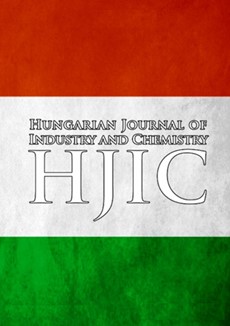Hydrocarbon Fractions Obtained from Recycling of Waste Materials
DOI:
https://doi.org/10.1515/382Abstract
Pyrolysis of contaminated waste plastics was carried out in a laboratory scale batch reactor at 450 °C under nitrogen atmosphere. Raw materials were original high density polyethylene (HDPE) and waste motor oil flasks from industrial sector. Volatile products were passed through a fixed catalyst bed with temperature of 350 °C. In the experiments Y-zeolite, β-zeolite, HZSM-5, Co/Mo and Ni/Mo catalysts were used. Three product fractions were obtained: gas, liquid and heavy oil. Catalysts had mainly effect on the gas and liquid yields, the amount of the residue did not show significant differences in the case of the same raw material. By pyrolysis of contaminated raw material higher volatile product yield could be observed compared to pyrolysis of the original raw material. Catalysts increased gas yields and had influence on the composition of products. Most significant effect could be observed in the case of Y-zeolite and β-zeolite catalysts. Contaminant level of liquid products could be decreased in case of thermo-catalytic pyrolysis, which is a key property for further application of the pyrolysis products.Downloads
Published
2011-09-01
Issue
Section
Articles
How to Cite
Hydrocarbon Fractions Obtained from Recycling of Waste Materials. (2011). Hungarian Journal of Industry and Chemistry, 39(1), 51-56. https://doi.org/10.1515/382




